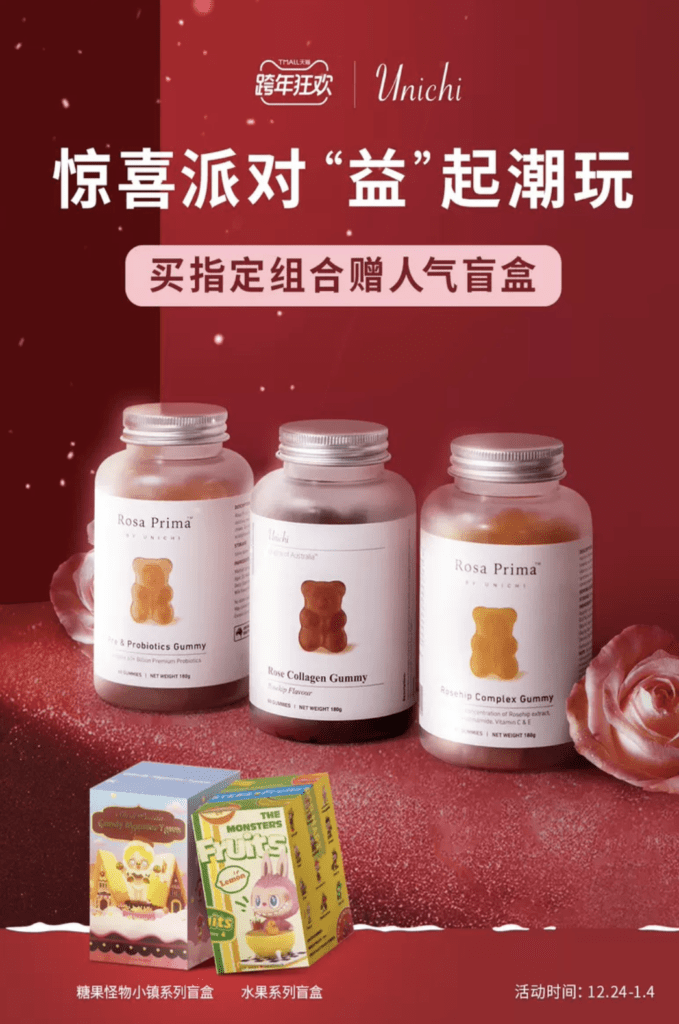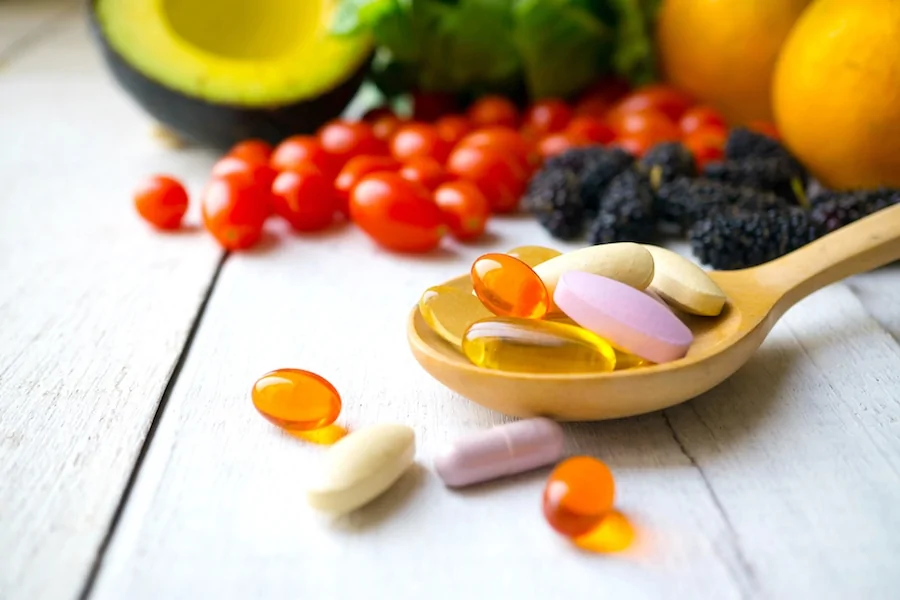China’s appetite for health products and services has exploded in recent years, with those seeking supplements and health foods now representing a larger market than ever before. Khanya Gundwana from RedFern Digital investigates the opportunities for UK brands
The consumer health foods market in China is heavily regulated by the Chinese government. Despite this, the market value amounted to RMB 2.9 billion (£338 million) in 2020 and can still be considered a promising market, expected to continue to grow annually by 8.5% between 2021-2025. In October 2021, the sales revenue for the overseas food and supplement market was greater than RMB 1.1 billion (£128.5 million), and during this year’s Double 11 (Single’s Day) shopping festival alone, the total sales volume of imported health supplements reached an impressive RMB 2 billion (£233.6 million).
The most popular product form for health supplements is still tablets, capsules, powders, granules and liquids. It is worth noting that the chewable or gummy format has also been demonstrating strong growth recently. Some of the newer brands in the health foods category that are popularising chewables and gummies are American vitamin brand Olly, and Australian brand Unichi. Unichi has differentiated itself by focusing on its “bear gummies.” In innovating their product formats and moving away from traditional capsules, these brands have attracted the younger generation, which has allowed them to achieve fast development in the China market.
What are the most popular health food supplements in China?
The categories and health effects that Chinese consumers were most concerned about during this year’s Double 11 shopping season included heart health and other cardiovascular issues, bone and joint care, beauty nutrition (e.g., supplements aimed at strengthening hair and nails), and probiotics and other microbial supplements.
According to Alibaba’s 2021 Tmall Healthcare Trend Report, products addressing hair loss, weight loss and a lack of sleep also continue to be popular categories. Sales of sleep aids, including supplements, sleep patches and electronic devices, demonstrated a 220% growth rate this year. This feeds into the growing backlash again China’s notoriously gruelling work culture.
Alibaba Health also identified a 56% rise in healthy foods that are conveniently packaged to eat on-the-go, including products such as sesame balls, bird’s nests and goji-berry beverages. The report described their growing popularity as part of the “fragmented healthcare” trend, meaning increasing numbers of Chinese consumers are looking for products or treatments to manage their health in their spare time.

An advertisement from the front page of Australian supplement brand Unichi’s Tmall Global page
What are the top five health supplement brands in China?
As of October 2021, there were 2,605 international brands operating within the China market. The top five international health food and supplement brands in ascending order are GNC, Life Space, Blackmores, Move Free, and Swisse.
Swisse achieved RMB 266 million (£31 million) in sales during the November 2021 sales period. Their top products are supplement complexes targeted at specific consumer groups such as active people, pregnant women or the elderly. Swisse reported double-digit growth in gross merchandise value (GMV), and retained the top spot on several e-commerce platforms during the Double 11 sales.
The above brands achieved success in China by continuously developing deep insights into the Chinese consumer, paying attention to how consumers shop, tailoring products and marketing to those insights and creating new consumer segments. They have built strong relationships with key sales and distribution partners, media, and their consumers as key opinion leaders (KOLs). They have also managed to maintain leading positions in their respective home countries, thereby building consumer trust.
Brands such as Swisse have established strategic partnerships with all five of China’s largest e-commerce platforms: Tmall, JD.com, Kaola.com, VIP.com and Xiaohongshu. This has, in turn, led to them establishing offline retail trading partnerships. Douyin (the Chinese version of TikTok) has also become increasingly popular as an online shopping destination, particularly among Gen Z. For example, Swisse’s GMV on Douyin increased by 316% during the 2021 618 shopping festival.
Of the top-performing brands this past Double 11 season on Tmall, it is worth noting the Chinese health food brands such as By-Health, Simeitol and Keylid were also strong competitors. By-Health has continued its dominance three years in a row by leading the vitamin and dietary supplements charts on both JD and Alibaba. It achieved RMB 600 million in sales and a year-on-year growth of 38.3%.
By-Health also has an international range that currently has just 10 to 15 products, all manufactured in the US or Australia. Its bestseller during the Double 11 festival was milk thistle, as well as its newly launched melatonin product, which gained popularity among Chinese consumers. Their second best-seller this season, Sleep Pro, was only launched in the middle of 2021. The company found that the type of consumer that chooses to purchase milk thistle usually works long hours, is inclined to protect their liver and tends to experience issues with sleep. As such, the company observed that consumers who purchased Sleep Pro were the same ones who purchased the milk thistle product.
A version of this article first appeared in China market-focused magazine, The RED Edition – Special Issue 2021, published by RedFern Digital




